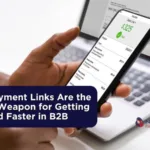Previously seen in Green Sheet
My Street Smarts medley
“The Load-Out”, written and sung by Jackson Browne, is how I feel at the end of my Street SmartsSM year. “When that last guitar’s been packed away, you know that I still want to play.” I thank The Green Sheet and its generous readers for giving me that chance. It’s truly an honor to play on.
We’ve covered so much in these past 23 columns, from “blowing up the internet” to finding common ground as partners, service providers, fellow payment professionals and friends. Through epic disruptions, card brand rule changes, policymaking, security mandates and technology, we’ve explored the following themes:
- Navigating the digital world: Electronic invoicing, digital payments acceptance and B2B customer portals are examples of consumer trends that have morphed into our work lives. Behaviors that began in mobile dating apps, like ghosting, fizzling, and breadcrumbing, are also finding their way into professional relationships. As payments become increasingly embedded into vertical solutions, can we correctly assume that software is the new ISO?
- Partnering: Payments has always been a relationship business, and partnership choices are key to our success. It makes sense to consult with an attorney before entering into an agreement. When negotiating a new contract, make sure that your agreement stipulates that you will continue to earn residual income if the company is acquired. Partners with clearly defined objectives and roles can help you win.
- Adding value: Selling value-added services can help create stickiness and long-term customer relationships. Sell services and solutions that make it harder for businesses to switch or want to switch. Clients who enroll in multiple services are less likely to leave. Examples include ATMs; POS technology; chargeback management tools; gift, rewards and loyalty programs; and alternative finance solutions – if the offerings really add value to the business.
- Networking: Regional conferences provide MLSs with opportunities to meet new and existing vendors and fellow salespeople and to learn about our business. Each show has its own distinct regional flavor and attracts a growing cohort of payments industry specialists, vendors, keynote speakers and salespeople. My partner Dave and I have attended every SEAA conference since its inception and gain new insights at every show.
- Remembering Marc Beauchamp: I thought about Marc Beauchamp when I found his book, Survive and Thrive III in my bookcase. The payments leader and Street SmartsSM columnist was attracted to bankcard life’s independent lifestyle and limitless income potential and mentored and inspired others in our industry, including me. Going forward, remember me as someone who strives to perpetuate this great man’s legacy.
- Protecting residuals: When one’s income is based on tiny little splits from millions of transactions, what could possibly go wrong? MLSs need more than a handshake or email to protect their residual streams. They need, at minimum, an airtight contract with professional assurance that its terms and conditions are in their best interest. In addition to having a good attorney, routinely reviewing residual reports is worth the time and effort.
- Deflecting fraudulent merchant applications: MLSs must practice KYC by fully vetting merchant applications before submitting them to underwriting. Combining artificial intelligence, biometrics and advanced authentication methods with human oversight can help weed out the bad guys. Calling applicants who applied for services online, performing virtual site inspections, scrutinizing uploaded documents and verifying businesses will help ensure that agents are passing “good paper” to risk managers.
- Selling self-attended solutions: The self-attended trend is here to stay, so let’s cash in. A good third-party service provider will help promote self-attended solutions and their array of benefits, whether it’s kiosks for ordering and paying for goods and services or ATMs for dispensing cash. In recent years, merchants have struggled with staffing issues and shortages; self-attended solutions don’t need to take vacations or breaks.
- Competing: Our biggest competitors are not each other, but Square, Stripe, PayPal, Intuit and platforms where merchants can sign up to accept payments. In-person selling, professional networking and tradeshows are great ways to compete with these impersonal tech providers. Having an internet presence and active social media accounts are effective ways to compete online. And please, don’t ever pay merchants to accept your services.
- Branding: In an era where people search online for businesses, businesses with websites and social media accounts are credible and discoverable. Claim an online listing with “Google my business page,” and consider investing in a virtual office if you work from home. Position yourself for success with an up-to-date LinkedIn profile and keep communications professional and appropriate. Invest in your business; it will pay off.
- Treating people like guests: Treat everyone as a guest by extending the same hospitality as you would do for a guest in your home. In merchant services, everyone in the payments value chain who takes care of a merchant deserves to be treated with dignity and respect. Whether you’re an MLS calling a help desk or ISO communicating with an MLS, respect and appreciation will win the day.
Take it away, Jackson Browne! “The band’s on the bus and they’re waiting to go. We’ve got to drive all night and do a show in Chicago. Or Detroit. I don’t know. We do so many shows in a row.” See you in two weeks at the next one!
CLICK HERE TO FIND MORE ABOUT OUR PROGRAMS
FAQ: Frequently Asked Questions
What makes the payments industry resilient?
The payments industry thrives on innovation, adaptability, and strong partnerships, allowing businesses to navigate economic shifts and regulatory changes.
How do digital payments impact business success?
Digital payments streamline transactions, improve customer experience, and enhance security, making them essential for modern businesses.
What challenges do payment professionals face?
Industry professionals must tackle compliance issues, fraud prevention, evolving technology, and shifting consumer behaviors to stay competitive.
How can businesses future-proof their payment strategies?
Companies can invest in emerging technologies, diversify payment options, and build strong industry relationships to ensure long-term success.
What role do partnerships play in payments?
Strategic partnerships help businesses expand services, improve security, and adapt to market changes, strengthening their position in the industry.







